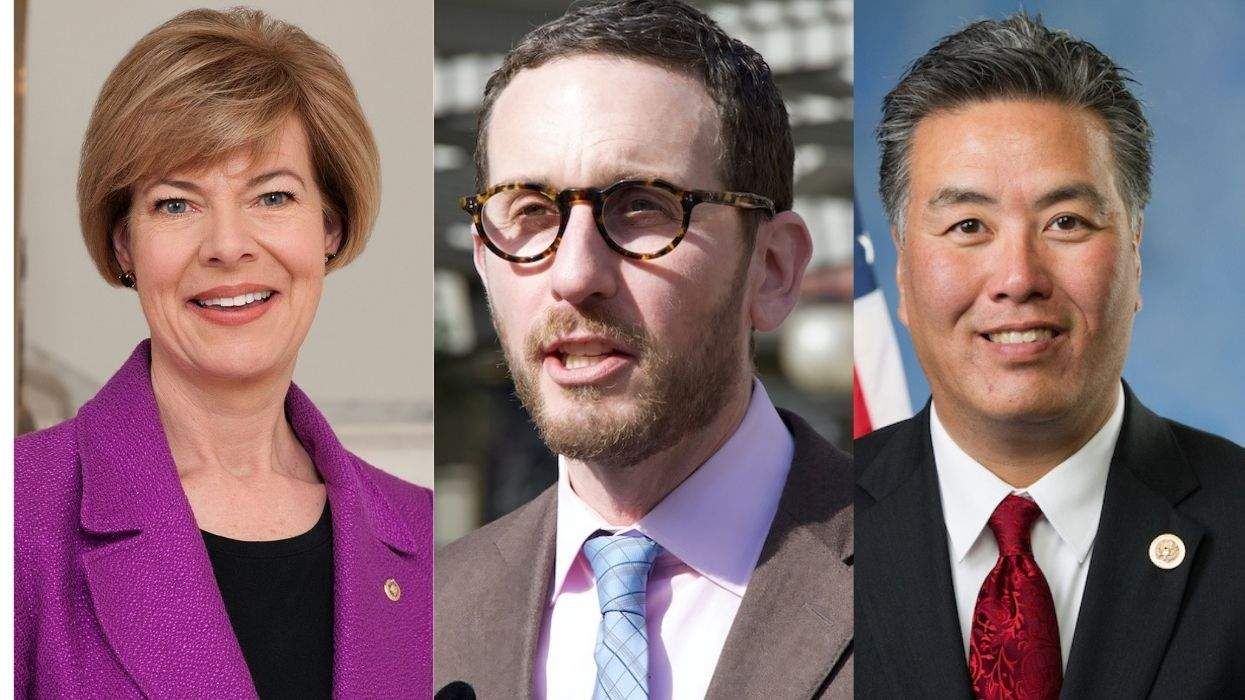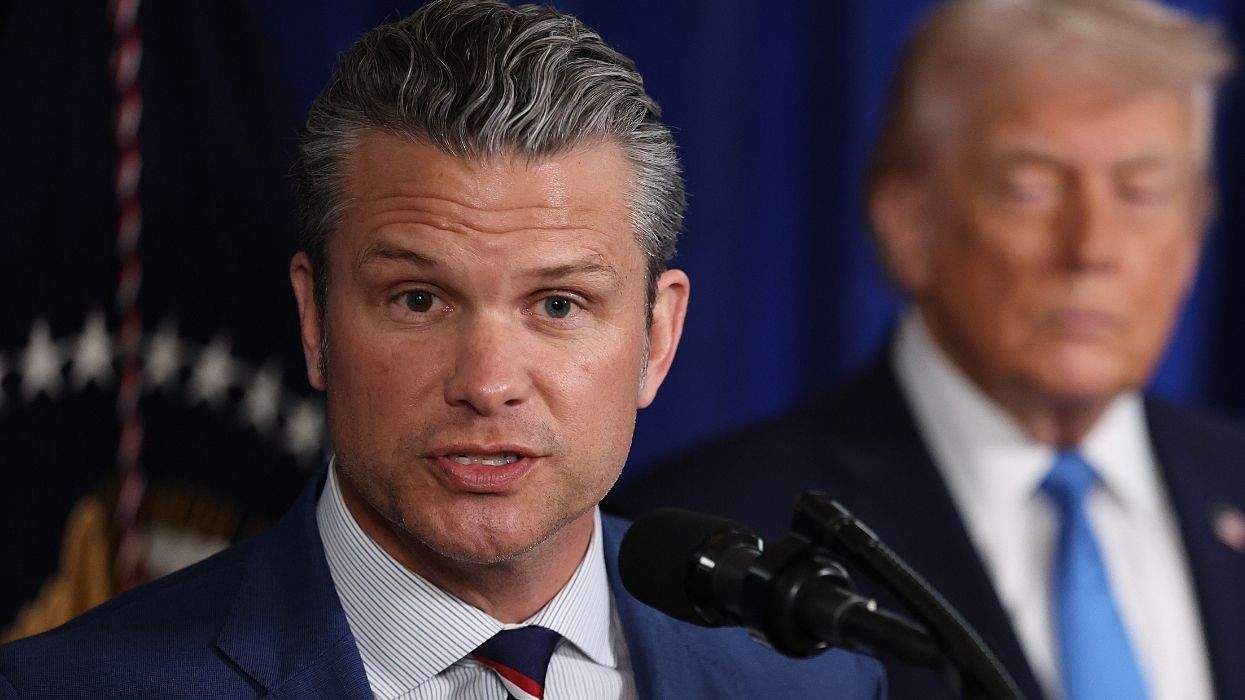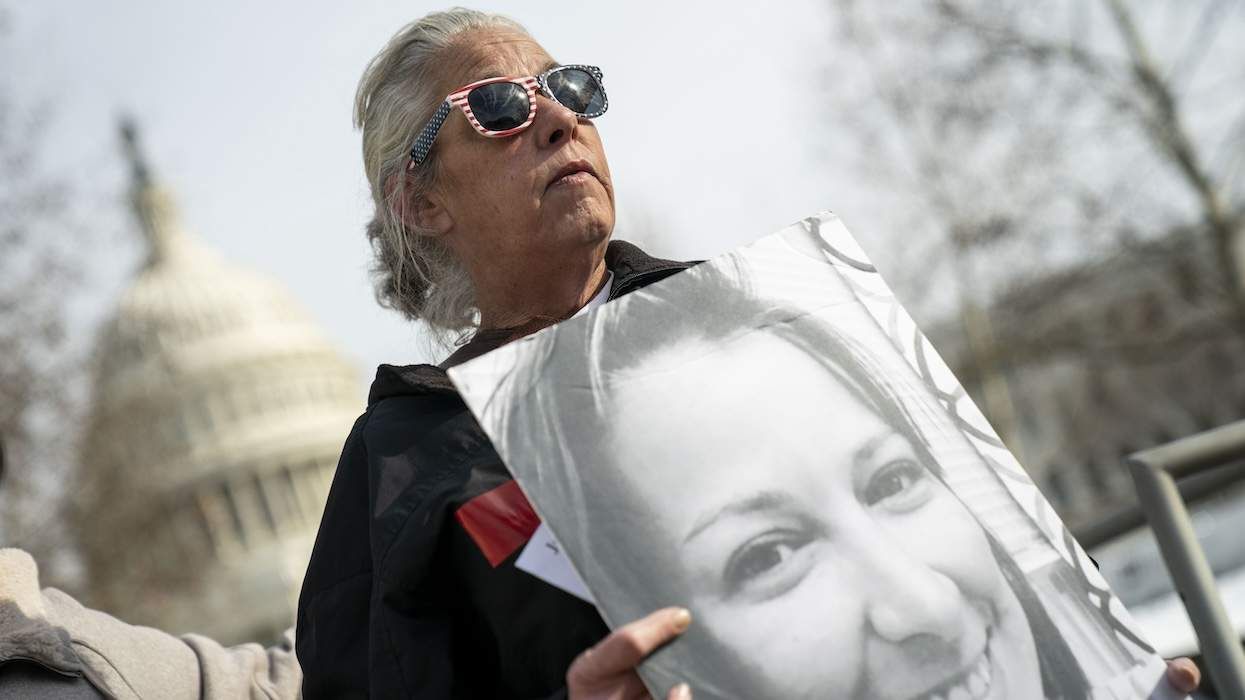Montana legislators have approved a so-called religious freedom bill that could lead to discrimination against LGBTQ+ people and others, while they're close to a final OK on an anti-transgender sports bill.
The Montana House of Representatives Thursday passed Senate Bill 215, the Religious Freedom Restoration Act, which had already been approved by the Senate, the Associated Press reports. The House failed to pass a proposed amendment making clear the act could not be used to override antidiscrimination ordinances in the cities that have them.
Gov. Greg Gianforte, a Republican, is expected to sign the bill into law. Lt. Gov. Kristen Juras told the House Judiciary Committee last month that the governor backs the legislation and "emphasizes this is not a license to discriminate against the LGBT."
Civil rights activists, however, said it could be used to challenge city ordinances that ban discrimination based on factors such as race, religion, sex, sexual orientation, and gender identity. Montana state law does not cover the latter two characteristics.
Republican Sen. Carl Glimm, the bill's sponsor, said overriding city ordinances is not his intention and that he merely wanted to protect private religious practices from government interference -- such as a school district ordering Indigenous students to cut their hair even if it went against their religion. Other supporters of the measure noted that the federal RFRA was endorsed by Democrats, including Joe Biden when he was a U.S. senator, and was signed into law by Democratic President Bill Clinton in 1993.
At that time, the act was meant primarily to protect private religious observances. But in recent years state-level RFRAs have been weaponized against LGBTQ+ people, single parents, members of minority faiths, and others, with the threat that businesses or individuals would have legal cover to deny goods or services to anyone who offended their religious beliefs. There was much uproar over such a law enacted in Indiana in 2015, and it had to be amended to make clear it could not be used to justify discrimination.
Businesses have joined civil rights activists in opposing the Montana bill. "From a small brewery in Columbia Falls to one of the largest beer companies in the world that buys our barley, businesses do not like this bill and they would like it to go away," Democratic Rep. Katie Sullivan of Missoula said Wednesday, according to the AP. "I think we should follow their lead and listen. If it is our goal to make Montana business-friendly, this bill moves us in the wrong direction and will make us known for discrimination instead of entrepreneurship."
The Human Rights Campaign issued a statement urging Gianforte to veto the measure. "Governor Gianforte was elected in part on the promise of bringing new businesses and industries to Montana," HRC President Alphonso David said. "He should seriously consider vetoing this legislation, which would not just discriminate against LGBTQ people, but threaten to ward off the very businesses he is hoping to attract."
Caitlin Borgmann, executive director of the American Civil Liberties Union's Montana affiliate, spoke out against the bill as well, saying, "It's shameful that Montana legislators have voted in support of yet another bill that will harm LGBTQ Montanans. We know that SB 215 will open the door to discrimination. It's disheartening that the majority of Montana lawmakers would rather invite people in Montana to discriminate against others than to protect equal rights for LGBTQ and other Montanans."
The sports bill, House Bill 112, was passed by that chamber in January, but an amended version was approved by the Senate this week, so the two versions must be reconciled before they go to Gianforte. He has not taken a public position on the measure, but he has a history of anti-trans statements.
HB 112, titled the Save Women's Sports Act, is aimed especially at preventing trans girls and women from competing with cisgender females. It says that "athletic teams or sports designated for females, women, or girls may not be open to students of the male sex," and this applies to public elementary and secondary schools, state colleges and universities, and any private schools that compete against them.
Many such bills have been introduced in states around the country this year, based on the belief that trans females have an inherent and unfair advantage over their cisgender counterparts. Both activists and scientists dispute this, and most sponsors of bills like this can't name a single instance in which the participation of trans athletes caused a problem in their state. Trans women and girls have competed in the Olympics and college sports for years without dominating the field or pushing other athletes out.
The amendment approved by the Senate says the act will be void if the U.S. Department of Education threatens action against the state, the Montana Free Press reports. The House must decide whether to accept that amendment or send the legislation to a conference committee to reconcile the two versions.
Similar bills have been signed into law in Arkansas, Mississippi, and Tennessee. South Dakota Gov. Kristi Noem, instead of signing such a bill, has issued executive orders with the same effect but still wants legislative action. A trans-exclusionary sports law was enacted in Idaho last year, but a federal judge has blocked it from going into effect while a lawsuit against it is heard.
The HRC and the ACLU of Montana both spoke out against HB 112. "Montana legislators have sadly led the national effort to advance these discriminatory bills that put fear over facts, science, and medicine," David said. "Montana legislators are putting Governor Gianforte in a position to jeopardize the wellbeing of the state and put transgender kids in danger in favor of anti-equality political talking point. While no Montana legislator has provided examples of what they claim to be legislating against, they continue to justify prioritizing this manufactured issue over addressing the COVID-19 pandemic and its economic fallout. Transgender kids are kids, and they deserve better than this targeted discrimination."
"HB 112 is yet another attack on trans youth," Borgmann added. "Trans youth deserve respect and dignity for everything they are. Instead of creating an environment for trans youth to thrive, this bill is based off of wild misinterpretations and falsehoods of what it means to be transgender. It will stigmatize trans youth and cause serious and lasting harm. We cannot let fear mongering and lies carry the day. If Governor Gianforte signs this bill into law, there is no doubt that we will sue, and there is no doubt that we will win."
In a letter sent to David, National Collegiate Athletic Association President Mark Emmert spoke out against anti-trans legislation too. "The NCAA is concerned with the numerous bills that have been filed across our country related to sport participation," he wrote in the letter, released Friday, the eve of the NCAA's men's basketball championship. "As we have previously stated in situations such as Idaho's House Bill 500 and its resulting law, this legislation is harmful to transgender student-athletes and conflicts with the NCAA's core values of inclusivity, respect and the equitable treatment of all individuals. The NCAA Board of Governors policy requires championship host sites to demonstrate how they will provide an environment that is safe, healthy, and free of discrimination. The board policy also requires that safeguards are in place to ensure the dignity of everyone involved in the event."




































































Charlie Kirk DID say stoning gay people was the 'perfect law' — and these other heinous quotes